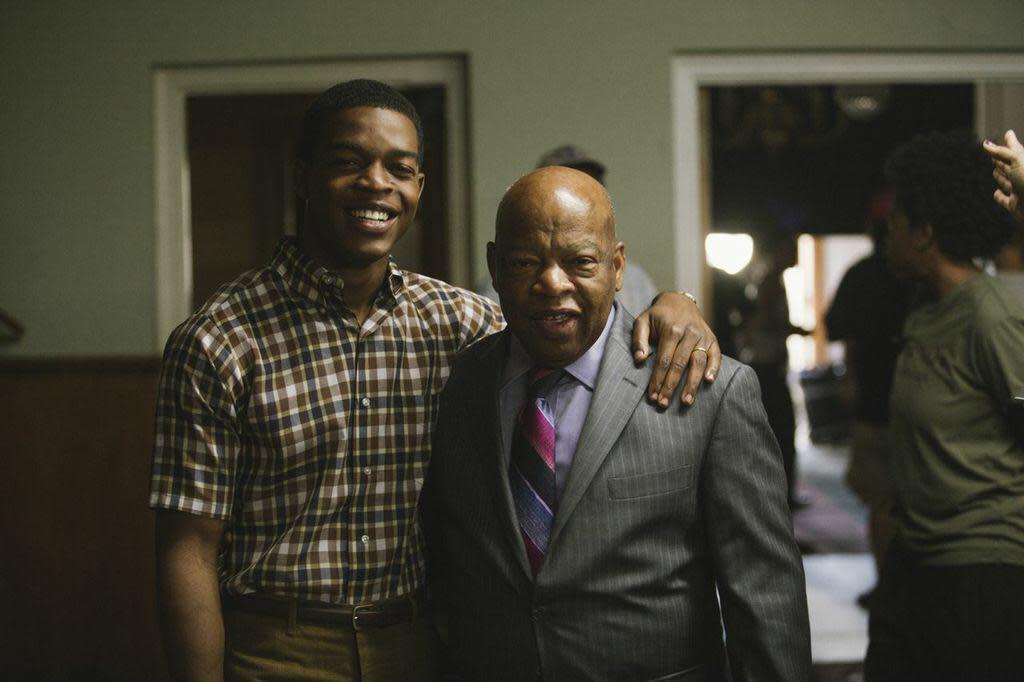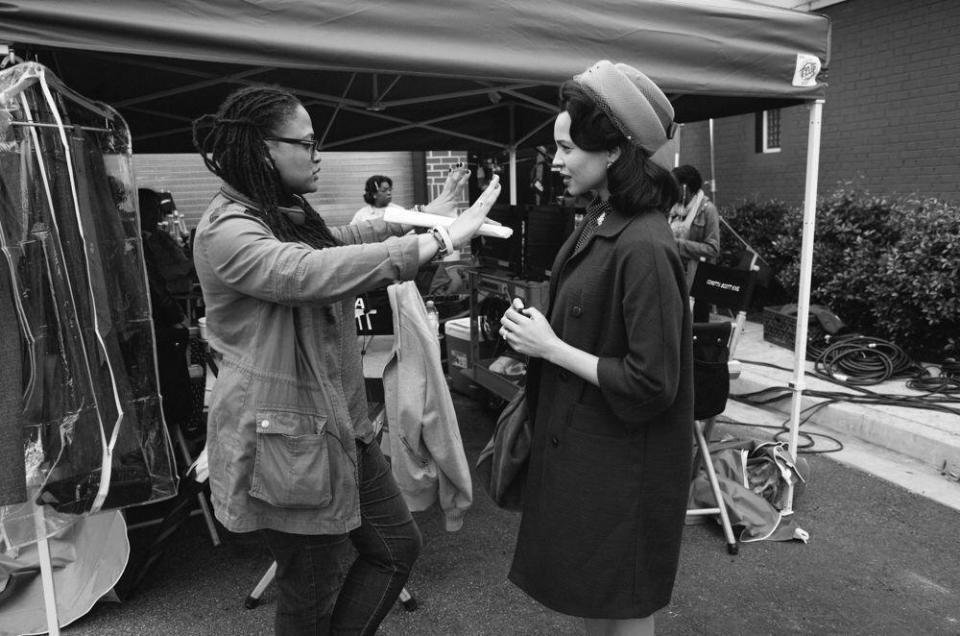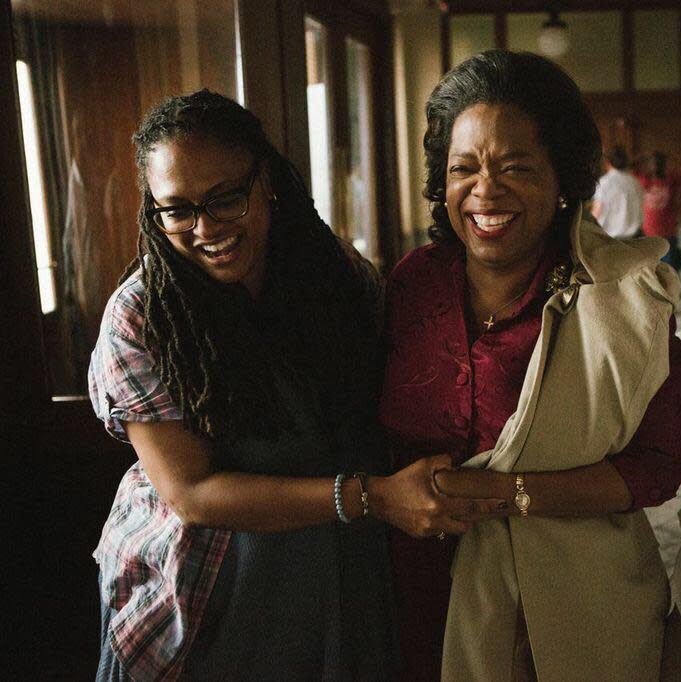The Real-Life Civil Rights Leaders Who Helped Shape 'Selma'

Rep. John Lewis with Stephan James, who portrays him in Selma
Though ostensibly a period drama, Selma is no artifact; many of the civil rights pioneers portrayed in director Ava DuVernay’s film, about Martin Luther King Jr. and the 1965 march from Selma to Montgomery, Alabama are alive and still active in the on-going struggle for equality.
Related: Making ‘Selma’ Without Martin Luther King’s Speeches
Newsletter: The Yodel
Trusted news and daily delights, right in your inbox
See for yourself — The Yodel is the go-to source for daily news, entertainment and feel-good stories.
DuVernay made sure to call on them so that they could contribute their insights and memories to the making of the drama, which hits selects theaters on Dec. 25 and has compiled a pristine 100 percent positive review rating on Rotten Tomatoes thus far. Among the most revered figures: longtime U.S. congressman John Lewis, who helped organize the March on Washington in 1963 and was the chair of the Student Nonviolent Coordinating Committee during the Selma-to-Montgomery march, and former Ambassador to the United Nations Andrew Young, who was the executive director of the Southern Christian Leadership Conference at the time of the Selma march. (Lewis and Young are played in the movie by Stephan James and Andre Holland, respectively.)
“Rep. John Lewis and Ambassador Young came by [the set], and I thought, ‘Oh my gosh, they’re coming, what do we do?’ But they were cool guys, great guys who just wanted the story told in the way that they thought fit it best,” DuVernay tells Yahoo Movies. "I talked to Ambassador Young a lot as I was working on the script in pre-production and trying to get the sets up and costumes up, and I’d call him and ask ‘Did Dr. King do this? How did the kitchen look?’ And he always gave great answers, great anecdotes. Good memories they have.“
Related: Behind-the-scenes of Oprah Winfrey’s dramatic ‘Selma’ moment
Lewis spoke to Variety over the weekend and reflected on the film’s accuracy and timeliness. “[It was hard] seeing, reliving what happened to the women and children, and hearing people crying out for help,” he said. “I thought the movie did a good job in capturing the essence of what happened and how it happened … It was long overdue. It was time for it to be on the big screen.”

DuVernay on the set with Carmen Ejogo
Meanwhile, Carmen Ejogo, who plays Coretta Scott King, was able to call upon her memories of meeting the late wife of Dr. King and civil rights leader after playing her in the production of the 2001 TV movie Boycott. That movie was set during the Montgomery bus boycott of 1955, a full decade before the Selma march.
"I definitely used some of that information, some of that experience of meeting her in this movie, because it by the time you see her in 1965, [she] is a woman who has really bought into the icon status,” Ejogo told Yahoo Movies. “She becomes very self-conscious about presentation, so that veneer has really set hard. We were really trying to crack that veneer and show a human side of this couple.”
When asked if there were any anecdotes or stories from Scott King that she was able to lean on for her performance, Ejogo said that it was actually her silence that spoke volumes. ”She was very stoic. We did talk a lot, ultimately, but I just remember, she didn’t really have to say anything when she walked into the room,” Ejogo explained. “She was the queen of Atlanta and of the movement and she owned it, and rightly so, because although we don’t know that much about Coretta — and in some ways she does just seem like the woman behind the great man — she was actually an incredibly powerful presence in many, many ways.”

DuVernay on the set with co-star and producer, Oprah Winfrey.
Watch the trailer:
Photos: Ava DuVernay/Twitter
Solve the daily Crossword

